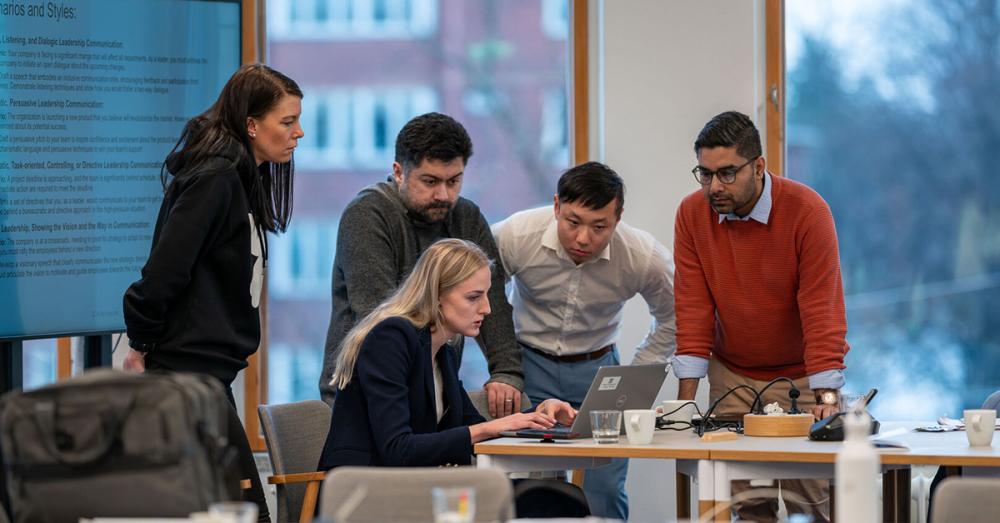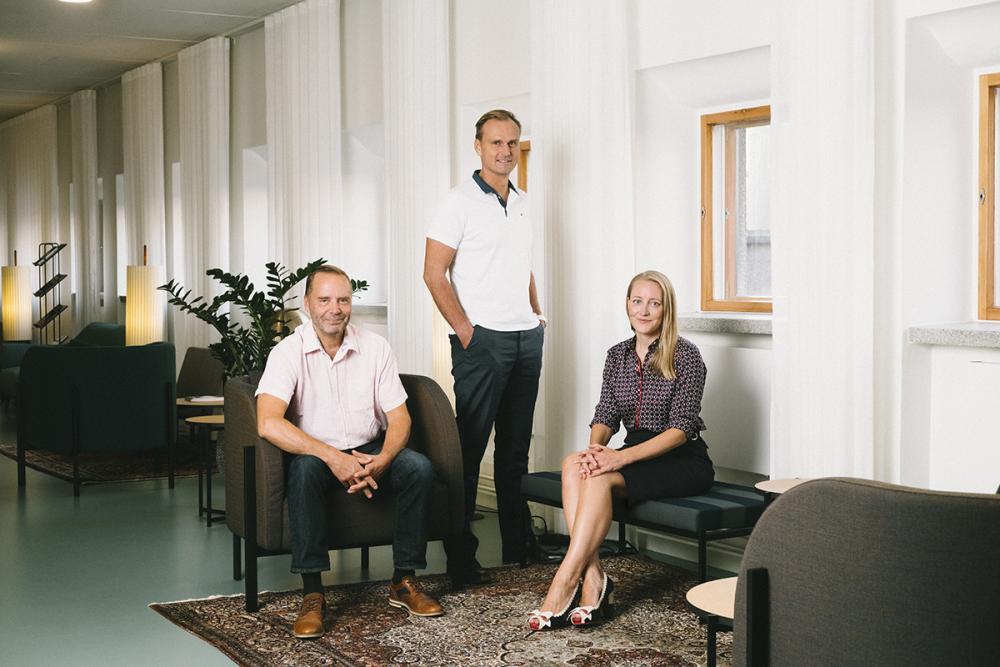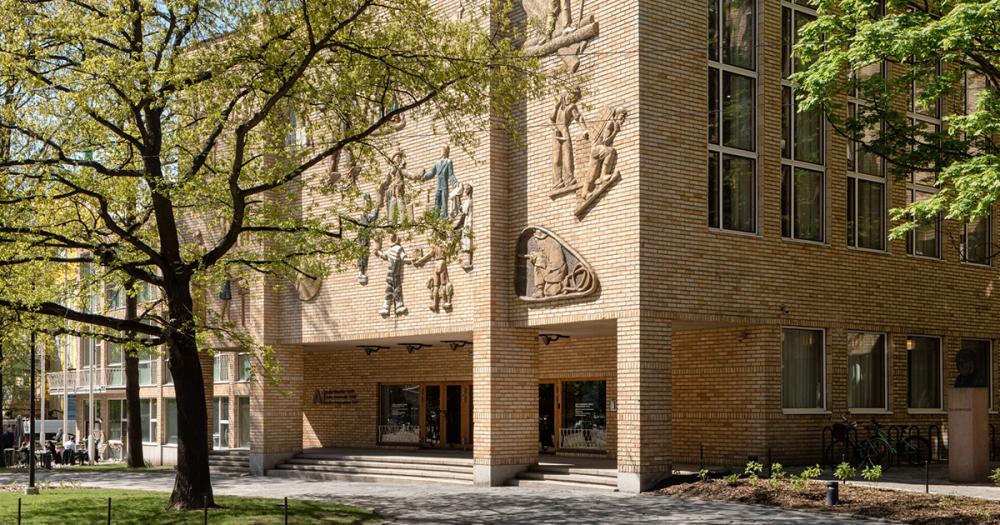Hello, and nice to meet you, who are you & what do you do?
I am Lauri Saarinen, currently an Assistant Professor of Operations Management at the Department of Industrial Engineering and Management at Aalto. My general (work-related) interest is in how we can use digital technologies, data and AI/analytics for better operations-related decision-making. My work in teaching, research and projects with industry revolves around different aspects of this topic.
What are the topics you have been researching recently?
I’ve researched the role of data-driven algorithms and digitalization in the operations planning processes of the grocery supply chain. This work has included a study on how highly automated and data-driven planning systems, together with the adaptable and manual S&OP (Sales & Operations Planning) planning process, enabled the grocery supply chain to manage the extreme disruptions during the initial COVID shock and transition to the “new normal.”
Two other studies on the role and value of data-sharing and visibility in improving supply chain resilience and enhancing data-driven forecasting for consumer goods manufacturers. Most recently, we have been working on a study on the value and implementation of expiration tracking capability to reduce food waste in the grocery retail supply chain.
Most recently, we have been working on a study on the value and implementation of expiration tracking capability to reduce food waste in the grocery retail supply chain”
What do you see as the most interesting key takeaways from these studies?
There are a few interesting general takeaways from these studies.
Contrary to what you might expect, advanced, automated planning systems help companies manage crises effectively. These systems allowed for rapid adjustments to detailed operational plans, which were crucial for handling the complex logistics of managing tens of thousands of products (SKUs / Stock-keeping units).
The basic intuition is that highly algorithmic and automatic operation requires high levels of process standardization and environmental stability, which can undermine the capability to manage heightened uncertainty.
However, what we learned is that suitable flexibility in data-driven planning systems, integrated with capable human planners and established processes for coordinating between human planners and algorithms, can greatly help organizations perform during a crisis.
The second key takeaway is that by enabling expiration tracking in the grocery supply chain is an example of a small increase in available data and accuracy in managing operations. We find that the availability of this data can enable an increase in sustainability by a significant reduction in retail food waste through data-driven and automatic markdowns and then by more accurate planning of replenishment along the whole supply chain.
What do you see are the practical implications of these findings?
Well, a few things.
Adding data and intelligence in business operations through digitalization enables us to more accurately, more effectively, and more intelligently to plan operations. But to do this, a solid basis of process and operational excellence is required.
The difficult part, I would argue, is not the tech in terms of AI, ML, or data but establishing process excellence where the power of data and technology serves the people and the organization. For example, a well-defined and standardized process can be automated, and then human intelligence and ingenuity can focus on the improvement and handling of non-standard special cases. Or, as in the case of retail supply chain planning, the operative execution that requires handling of huge scale and detail can be automated to a data-driven planning engine, which then enables the planner to take a strategic role and view in planning future scenarios, setting planning rules and coordinating with the customers and suppliers.
The difficult part, I would argue, is not the tech in terms of AI, ML or data, but establishing process excellence where the power of data and technology serves the people and the organization
There are two distinct and different challenges. Process excellence is required to define and standardize business processes for effective automation. On the other hand, imagination and vision are required to design new possible processes and operations that digitalization and data enable. This might sound simple and obvious, but in my experience, imagining and establishing new ways to do stuff is very difficult.
For example, regarding the expiration tracking in the grocery industry, based on interviews that we have made, the industry has many and well-justified warrants against investing in technology to enable expiration tracking of perishable food products. For us researchers, this is understandable but also surprising, given that in our large-scale study, we find, on average, a 10% reduction in food waste due to the expiration of products (preliminary results, paper currently in review process). The underlying challenge is that this new expiration tracking to be scaled will require investments and changes in both the digital and physical processes, which is always costly and risky. But I think that this exemplifies an example of digitalization, where the technology is available, potential benefits can be identified, but there clearly is no “plug and play” solution.
What we should take away from this example is that there are mostly no “plug-and-play” solutions for digitalization because each organization is unique, and that is key in creating valuable results. Creating value from digitalization requires a managed change in how the organization operates and operations excellence is crucial in that.
There mostly are no “plug and play” solutions for digitalization because each organization is unique”
The business implications seem solid; how do you see these findings impact the planet & society?
Well, first, I hope that we can make a small contribution to the food supply chains in implementing expiration tracking to enhance sustainability through the reduction of food waste and enhanced resource efficiency. If a small back-of-an-envelope calculation is warranted: a 10% reduction of retail food waste scaled globally would reduce 121 megatons of food waste globally, reduce global greenhouse gas CO2 emissions by 0.06Gt, which roughly corresponds to the total GHG emissions of Sweden (in 2022).
10% reduction of retail food waste scaled globally would roughly reduce 121 megatons of food waste globally”
More generally, I hope that our research group focusing on industrial data and digitalization at the Department of Industrial Engineering can contribute to the competitiveness and sustainability of the Finnish industry by supporting through research and teaching in the next stages of transforming to a digital future.
Great to hear that impacts can be extremely high on different dimensions – In the end, what would be your recommendations to enhance operations management with data & AI (Digitalization)?
To create value from Data and AI (digitalization) for existing operations most likely requires changes in the processes and operations.
Start from understanding and analyzing your processes and then move to improving or redesigning them before starting the technology or system implementations. This work is for you and cannot be delegated to IT consultants.
Processes and operations are interdependent; seemingly small additions of data and digital can require fundamental changes in the operations before the value and benefits are gained.
AI cannot automate non-standard and improvised processes, and building IT systems for these processes will be costly. However, when built properly, data-driven and automated processes can enable increased flexibility and resilience, in addition to efficiency gains.
Many thanks, I hope our readers enjoyed this as much as I did. If you want to talk about how Aalto EE can support your journey to be more data-driven, please do contact Sami Koskela sami.koskela@aaltoee.fi, Director, Data & AI Solutions, and see our open programs related to digitalization from here: Digitalization - Executive Education and Professional Development Training | Aalto EE






















